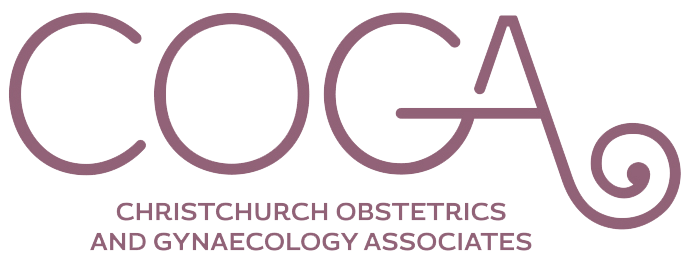Managing menopause and midlife health: we can help
Midlife might be a time of turbulence, uncertainty and incredible change for many women. But for many it is also a powerful and affirming time of life – provided you know what’s in store, and how to manage it. This is where your gynaecologist can help.
It might feel far from it at times, but perimenopause and menopause is a normal and natural stage of life. Every woman will go through a transition as the body stops producing oestrogen and everyone will experience the effects of this hormonal change completely differently. Though the list of symptoms does seem daunting, both in number and nature, don’t despair! The more you understand how declining levels of oestrogen can impact the body’s functions, the better prepared you are to manage the really disruptive symptoms, should they arrive.
We can tell you what actually works – and what is likely to work for you personally.


Who’s the first port of call?
For some, it’s your GP but it doesn’t have to be. Many women will self-refer to a gynaecologist if they suspect their symptoms are consistent with menopause. It could be that you feel uncomfortable talking openly about it with a male doctor for cultural or sensitivity reasons. Or sometimes, you just want to go straight to someone with an experienced and nuanced understanding of this life stage.
Whatever brings you into the gynaecologist’s office, there’s plenty we can help with once you’re here. The benefit of seeing a gynaecologist first is that we’re intimately familiar with menopause symptoms, can dispel any myths and give evidence-based recommendations around the lifestyle modifications that actually help.
There’s a lot of snake oil “treatments” for menopause out there now, and an increasing number of consumer products marketed at menopausal women. We can tell you what actually works – and what is likely to work for you personally.
What happens in the first appointment?
As with any first appointment, we will take a comprehensive history of your health – both gynaecological and general. You might be surprised at the detail we cover but the more you can tell us, the better. It all feeds into a holistic plan for moving through this stage of life (which is only temporary, remember!) and treating what can be treated.
We’ll take a physical health history, even going back as far as your experience of puberty. We’ll talk through details of your menstrual cycle, types of births, any birth trauma and other significant life events. We even ask about any memories of what your mother was like at the same age. All of this information plays a part in how you see yourself and how your body might react to declining levels of oestrogen.
How do you know if I’m perimenopausal?
At menopause, ovulation no longer occurs and production of oestrogen and progesterone ceases. Levels of oestrogen (the main sex hormone in women) can vary in the time leading up to the final menstrual period (called perimenopause) and this can cause any number of menopausal symptoms. You might have none, some or a horrendous mix – it’s entirely individual.
It would be lovely to take a blood sample, send it off to the lab and come back to you with a clear answer on where you’re at in perimenopause or menopause (and how much longer you’ve got to go!) Unfortunately we can’t. There isn’t a reliable test that provides this information. Instead we rely on identifying and tracking the symptoms you are noticing and feelings. To help us gauge where you might be at before and during treatment, one tool we use is the AMS (Australasian Menopause Society) Symptom Score Card.
It’s important not to self-diagnose. The symptoms of menopause might not be related to oestrogen or progesterone deficiency and could indicate another health issue, which is why that first thorough consultation is so important.
What can a gynaecologist do?
A treatment plan is entirely dependent on what we see and hear from the patient. Your plan might look entirely different from your mother’s or friend’s. We take an holistic and cross-discipline approach, referring to other specialists such as pelvic floor physiotherapists and dieticians as needed. It will be entirely personalised and could involve a number of hormonal and non-hormonal treatments, as well as lifestyle modifications.
Perimenopause and menopause symptoms range from fatigue, anxiety, memory loss and sleep disorders to joint pain, headaches, skin problems and vaginal dryness (and, unfortunately, many more). There are steps we can take to relieve symptoms and make this time more comfortable.
Hormonal treatment: HRT / MRT
Hormonal Replacement Therapy (HRT), or Menopausal Hormone Therapy (MHT) as it is now known by doctors, is the most effective treatment for the treatment of menopause’s most disruptive impacts – vasomotor symptoms (sweats and hot flushes) and genitourinary symptoms (dryness and irritation of the vagina, vulva and urethra) . It’s a potentially life changing solution for many.
As Dr Pip Shirley puts it, the aim of MHT is “the lowest dose for the shortest time for the greatest effect”.
The type of HRT you require will depend on your overall health as well as whether or not you have a uterus. Those without a uterus will need just oestrogen while those who have a uterus will need to take both oestrogen and progestogen.
The gold standard for MHT treatment is a Mirena (if the woman has a uterus) with an oestrogen patch but this is always individualised to the patient. If a woman prefers not to have an IUD, Utrogestan tablets daily with an oestrogen patch is a good alternative.
Many women find that MHT makes a drastic difference to their lives, resolving health issues, switching their brains back on and making them feel more positive almost immediately.
An oestrogen cream is incredibly helpful for sorting out vaginal dryness. It’s a common symptom and one that is often easily resolved. We generally prescribe Ovestin (subsidised) that can be applied topically to help reduce dryness and pain. It’s applied via a tube, like an applicator tampon, and plumps up the vaginal tissue. This often helps to sort out bothersome UTIs and needing to wee all the time, in addition to vaginal dryness.


Non-hormonal: diet and lifestyle
There are modifiable lifestyle factors involved in menopause management such as weight management, alcohol and caffeine recommendations, and changing the type and frequency of weight bearing exercise. Niki Bezzant’s book This Changes Everything is a wonderfully readable and honest guide to this stage of life, including lots of evidence-based recommendations about lifestyle changes that actually make a difference.
Vaginal dryness and painful intercourse can be helped by using a natural vaginal moisturiser like Olive and Bee or NuBalm.
Joint pain is a common complaint among menopausal women. As women reach their late twenties, bone mass begins to slowly but steadily decline, and this is exacerbated by the decline in oestrogen that occurs during menopause. Strengthening and resistance exercises can help build back bone mass and keep women healthy and strong well into their later years. If pain is ongoing, physiotherapy can also be an option.
Menopause can have a debilitating effect on mood, confidence and brain clarity. It can also cause depression. If these are issues affecting you, the best thing to do is talk to your doctor about it and see if there is something that can be done. Often, HRT will help resolve these symptoms, but you can also see a mental health professional or begin antidepressants, if required. Silent suffering will not make it go away.
There is so much to discuss about this stage of life! Come in for a chat about your concerns, questions or symptoms and we can take it from there.
Common questions we hear are:
- How long does menopause last?
- When will I be through it?
- What are the pros and cons of taking menopause hormone therapy (MHT) for me?
- Can I treat my symptoms naturally?
- If I do decide to take MHT, for how long should I take it?
- When am I no longer fertile and when should I stop using contraception?

